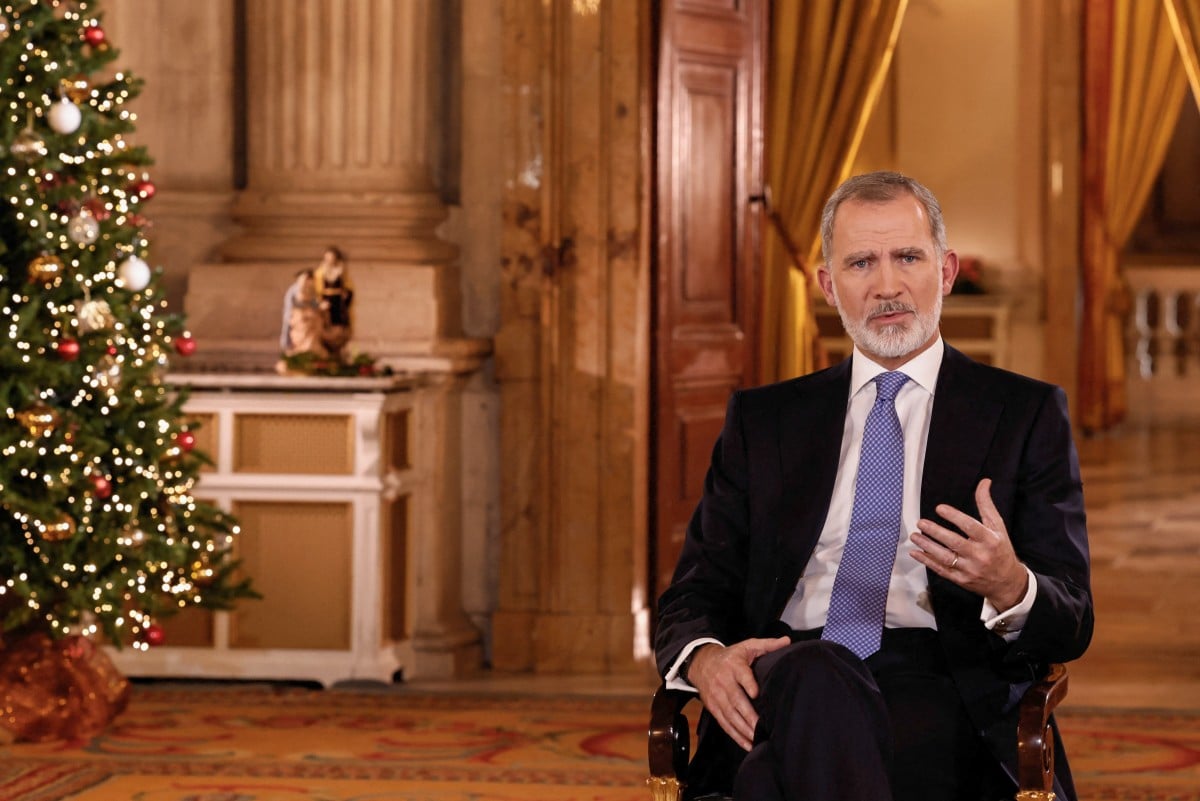
The October 29 disaster killed 231 people and devastated swathes of the eastern Valencia region, with thousands of victims now spending Christmas without loved ones, homes or property.
The tragedy was “an event difficult to accept, but from which we must all be able to draw the necessary lessons that strengthen us as a society and make us grow”, Felipe said from Madrid’s Royal Palace.
The European country’s deadliest natural disaster in decades unleashed popular anger at the national and regional authorities for their perceived mismanagement.
Many residents received telephone alerts after water was already engulfing their homes and some municipalities went without aid for days, relying on volunteers for immediate rescue work.
Felipe and Queen Letizia felt that fury on November 3 during a visit to the ground-zero town of Paiporta, where survivors pelted them and Prime Minister Pedro Sanchez with mud in images that stunned the world.
“We have realised — and understood — the frustration, the pain, the impatience, the demands for a greater and more efficient coordination by the administrations,” Felipe said in a subtle reference to the unrest.
The 56-year-old monarch pleaded for restraint in politics amid a climate of polarisation exacerbated by the floods.
READ ALSO: Angry at Spain’s flood response, 100,000 rally in Valencia
“It is necessary that the political battle, legitimate but occasionally deafening, does not prevent us from hearing an even more clamorous demand: a demand for calm,” he said.
Felipe also referred to the divisive topic of immigration as irregular arrivals to the Canary Islands broke records for a second year running, straining authorities on the Atlantic archipelago.
Advertisement
Migration was a “daily reality” that could “lead — without the right management — to tensions that erode social cohesion”, he added.
Felipe marked his 10th anniversary on the throne this year after his father Juan Carlos I abdicated in disgrace in 2014.
The message concluded with a wish for a merry Christmas in Spanish, Catalan, Galician and Basque, the country’s four official languages.
